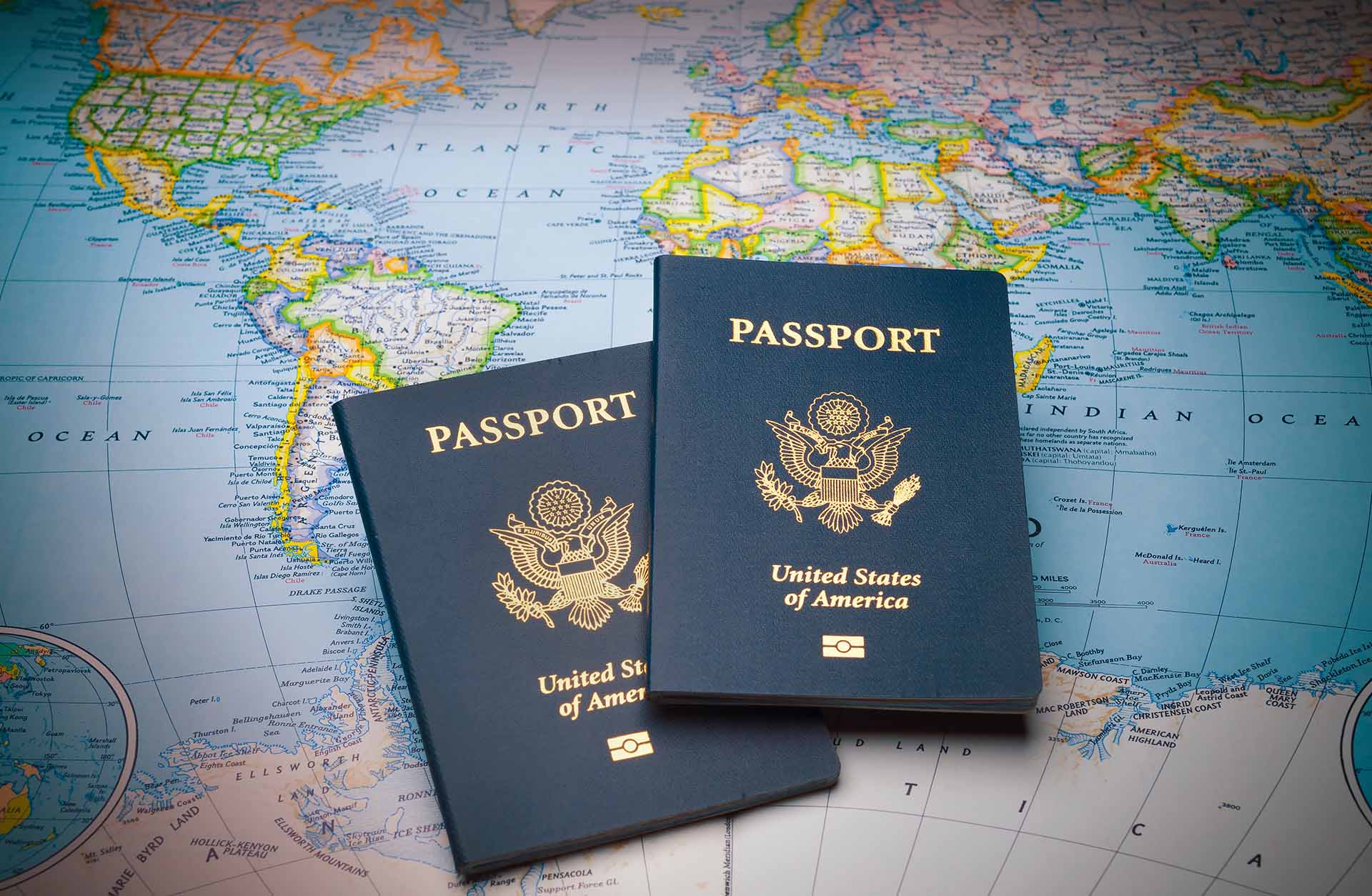If moving to Barcelona, the second-largest city in Spain and one of the most beautiful places in the world has been a dream of yours for some time now, there are a few things you should think about before moving overseas and embarking on this adventure.
Consider the cost of living, neighborhoods, job opportunities, and language. The more information you gather about the so-called Ciudad Condal, the easier it will be to adjust to the new environment. Try to learn a bit of Catalan and Spanish before moving to Spain, because folks that live here tend to speak both.
When moving to Barcelona from the US, know that the capital of Catalonia, also famous as Barna and Ciudad Condal, is the only owner of the Royal Gold Medal for architecture. Every time you stroll around, you will be in the presence of architectural marvels that have inspired people worldwide.
What Do I Need to Know About Moving to Barcelona
If moving to Barcelona from the US, you’re probably wondering what to expect when relocating across the world. Leaving your homeland, family and friends might be a trigger for million questions, like How to live in another country?, Will adjusting to a new country be difficult?, How am I going to deal with breaking the language barrier?
All in all, to make this adjustment process more comfortable for you, we’ve decided to provide you with handy tips and useful information before moving to Barcelona. So, here are some of the most essential things to know before moving to Barcelona, Spain.
Catalan is the official language in institutions, schools, and it is used for communications in public. In Barna, you can pick up a bit of this language by speaking or learning Spanish. If you want to fit in and become a true local, you should take some language lessons. It will be easier to master them because you will be learning languages abroad, surrounded by native speakers.
Known for its style, which combines sculpted designs with new building technologies, Gaudi was the leader of the Spanish Modernist movement. Barna is fulfilled with its world-famous architecture – Casa Vicens, Casa Batllo, Palau Güell, Parque Güell, Sagrada Familia, etc.
As a popular tourist destination, Catalonia’s capital is jammed with people all year round. So, if you’re looking for a peaceful place with a relaxed lifestyle, think twice before relocating overseas.
Spaniards are friendly-nation and like to gain new friends. Still, in cities like Ciudad Condal with 1.6 million population within its limits, sometimes it’s common not to know your first neighbors. Also, it’s worth knowing how they make friends. They will not invite you to dinner at their homes because they prefer hanging out in bars or restaurants.
Most shops and supermarkets are closed on Sunday. Spaniards like to spend this day with friends and family in a cozy and pleasant environment.
Last but not least – all shows and movies from other countries usually don’t have subtitles. So, don’t be surprised if they’re dubbed into Spanish.
How to Immigrate to Barcelona and Other Visa-Related Issues
Are you wondering how to immigrate to Barcelona and settle down in the most cosmopolitan place in Spain? If so, you should think about the essential documents needed to travel abroad. Make it easier for yourself, create a checklist, and write down all the necessary paperwork you have already gathered and yet to obtain.
Start with a passport and visa. Check government websites and see exactly what you need to provide to get your visa approved. If you are a US citizen, you will be able to stay in Spain and other members of the Schengen area for up to 90 days without a visa. But since you are relocating for longer, here are your options for staying in the country legally:
- Family reunification visa (visado de reagrupación familiar)
- Work visa
- Student visa (visado de estudiantes)
If you want to live and work in España, you can do that without restrictions if you’re from the EU/EEA or Switzerland. Therefore, most non-EU citizens will need to obtain a working permit. There are numerous types of work visas for different types of works, and some of the most common are:
- Long-term
- Seasonal
- Au Pair
- EU Blue Card
You can work as a highly-skilled employee, non-EU citizen, if your profession is listed as a shortage occupation. The employer then requests a working permit from the Ministry of Labour. Keep in mind that this application can take up to eight months to process, so planning ahead of time is needed.
Once the hard part is done, and you have your visa, you will require an identity number. Apply for Número de Identificación de Extranjeros, or NIE, by providing:
- The application form
- A copy of your passport information page
- Proof that you paid an application fee
This is a requirement for every foreigner who wants to work, rent, buy a house, and open a bank account.
Spanish Banks Make Money Transactions Faster
Are you planning to stay here for a while? If so, consider getting a bank account in one of Spain’s banks. International banks are great, and you will be able to access your money there, but transactions sometimes take time. People who don’t want to wait days to have their funds opt to open an account in one of the local banks. To do this, you will need to pick a bank and provide your NIE.
Your account will come in handy if you want to pay for groceries and things on a day-to-day basis, as credit cards make 24.30% of all payments.

Think About the Cost of Living in Barcelona
Money plays a big part in any international relocation. No matter what your budget is, you should be prepared for life in the new country by researching prices and other aspects of the cost of living in Barcelona.
To have a bigger picture of your monthly expenses, we’ll try to give you a general idea of what to expect when relocating to Barna, based on Numbeo data:
- Rent – depending on the size of your apartment and the part of the city where it’s located, you should put aside between $850 and $1,800
- Utilities (electricity, heating, cooling, water, garbage, and internet) for 915 sq ft apartment are, on average, $200
- Groceries – for food, you will pay around $300 per month
- Transportation – one-way ticket costs $2.59 while monthly pass is $47
- Entertainment – a cinema ticket is about $10, and if you want to spend some period in a fitness club, your monthly fee will be about $50. If you’re a museum enthusiast, tickets range from $8 to $30.
How Much Money Do I Need to Move to Barcelona
When leaving your homeland and going overseas, you should have enough savings for the first period of adjusting. If you’re relocating abroad due to better job opportunities, you don’t have to worry about your monthly income. Still, keep in mind that you should have some savings (at least for the three months) before the relocation day because pre-moving costs often aren’t low. So, here are the most common expenses:
- Moving company costs (international moving, storage, packing services, and overseas auto shipping)
- Deposit for your new place and first month’s rent
- Plane travel expenses
- Visa costs

Pick the Right Neighborhood to Live in Before Moving to Barcelona Spain
The famous Swiss-French architect Le Corbusier once said, “allow me to state here how much I love Barcelona, an admirable city, a city full of life, intense, a port open to the past and future.” Therefore, finding a perfect home in some of Barcelona’s residential areas won’t be that hard, after all.
Consider the amount of money you are willing to spend on rent or buying a home before you pick the area. When the budget is calculated, you can do your research and find a location that you will be pleased with. Barna is divided into ten districts, each with a unique vibe:
- Eixample is a trendy and upscale spot that attracts folks who crave the best of nightlife and culture. Here you can see some of the most famous buildings of Antoni Gaudi, the legendary architect who left a permanent mark on Barna’s architecture. You can also eat at high-class restaurants and take a stroll through parks.
- Ciutat Vella, a historical center and the third most densely-populated area, is known as the old district or the gothic district. It is the home of Plaça Catalunya, the most famous meeting point in the city.
- Sants-Montjuïc is the center for cultural institutions and the textile industry. The spot preserved the vibe of a small local community, and it is a perfect place for those who love to get around on foot.
- Les Corts is the least populous district, so if you don’t enjoy big crowds, look for an apartment in this area. It is also a business hub with plenty of office spaces and business-people rushing around.
- Sarrià-Sant Gervasi combines urban tapa bars, boutiques, and hillside walks. This largely residential area is famous for its slower pace and tranquil vibe, making it one of the best places to live with family.
- Gracia is the smallest district by area and one of the hippest. Close packed streets and the Mediterranean architecture give it a unique feel, attracting mostly young professionals and artists.
- Horta-Guinardó is a biking and hiking paradise. Many outdoor enthusiasts would consider it perfect for settling down.
- Nou Barris is an immigration hub. Since 2000, many foreigners from Romania, Ecuador, and Ukraine settled down here.
- Sant Andreu is a village-like district that is 20 minutes away from the center. If you would like to avoid tourists and large crowds, you should seriously consider this district as your next home.
- Sant Martíis is populated mainly by working-class residents. The area has a huge outdoor space that residents use to play football, basketball, or cycling and jogging.
When searching for the right neighborhood, some people seek open spaces, others look for high-class restaurants, while some only care about the location. Whichever district you choose, ensure that it has all that you require.

Transportation Options – Choose Between Metro, Buses, and Trams to Get Around Barcelona
Barna is big, but luckily it has a well-developed public transportation network that you can use to get from one place to another fairly quickly. You can use the metro system, which has eight lines, 160 stations, 156 trains, or a well-developed bus network operated by Transports Metropolitans de Barcelona. The peripheral areas of the city are connected to the center via six tram lines operated by Tram. You also have the option of taking night buses that run late into the night or hop on local trains, railways, and taxis.
Don’t leave your bike in storage. Know that you will be staying in a place that has, on average, 55 rainy days a year, which makes it perfect for cycling. There are 200 kilometers of cycling paths and over 400 biking stations where you can rent a bike.
If you choose to ship your car, keep in mind that there are three international routes and a comprehensive network of highways and motorways through the metropolitan area.

Find Out What Is a Good Salary in Barcelona Spain If You’re a Career Chaser
Are you relocating overseas because of a new job? Do you want to climb that career leader while living in a sunny Mediterranean nation?
Barna is a place where many expats found their home, as well as fulfilling career opportunities. The GDP of $31,578 per capita is 16% higher than the EU average, but this is also one of Europe’s best and fastest improving business centers.
The manufacturing industry contributes significantly to the economy, and 67% of industrial establishments in Catalonia are located in Ciudad Condal. You can find employment in SEAT, Derbi, or Nissan.
If the manufacturing sector is not for you, there are companies in telecommunications, tourism, and fashion you should check out.
According to emolument.com, the highest paying careers in Barna are:
- Social Worker – $107,000 annually
- Legal Department – $77,000 annually
- R&D, Pharmaceuticals and Biotech – $71,000 annually
- Public Sector and Not For Profit – $68,000 annually
- Sales and Business Development – $64,000 annually
Living in Barcelona Might Be an Excellent Opportunity to Start a New Career
When relocating to a place with a multicultural workforce, you are bound to have a variety of employment opportunities. Almost 17% of all the workforce in Barna is not from Spain. If you only speak English, there are employment opportunities in hotels and bars. Since this is a famous tourist spot, knowing the tongue is highly appreciated. Also, if you have a working knowledge of Spanish or Catalan, your employment choices multiply, and you can apply for some of the many teaching or telesales jobs.
When Moving to Barcelona from the US, Consider Networking as Essential in Finding Employment
It would be a good idea to look for employment while still in the U.S., especially if you’re looking to obtain a working permit. Update your profile on sites such as LinkedIn, join some local groups, and follow big companies. When you connect with other expats living in Barcelona, they might assist you with the search. Depending on your work field, you can join the chamber of commerce or other business groups.
Keep in mind that the job market is competitive; that’s why finding a recruiter to help might be the best solution.
Be Familiar With Healthcare and Some of the Best Schools When Moving to Barcelona Spain
The healthcare system in Spain has a good reputation, boasting excellent medical care and low costs. Public healthcare is universal, but some visas (for example, the non-lucrative permission) require private insurance to obtain the permit.
If you’re working and contributing to the social security system, you’re eligible for public healthcare. Still, many expats and locals choose an additional solution: private insurance because it is very affordable.
When it comes to education, here are the most popular options for English-speaking expats:
- British international private schools based on British school curriculum cost from $11,800 to $17,700 a year, and schools teaching in English, which is also based on the British schools system, but is less expensive
- American based education which includes the American School of Barcelona (ASB) and Benjamin Franklin International School (BFIS) with tuition fees from $17,700 to $23,500 per year
- Semi-private schools (concertadas) provide your kids with excellent schooling and the possibility to learn Spanish or Catalan. In some of the best concertadas, teaching is based on combining these two languages with English, although Catalan is usually the primary language of instruction.

The Differences Between American and Spanish Culture
As an American relocating to Spain, you should be prepared for some different cultural experiences. The pace of life here is probably way different than what you are used to. Locals are more relaxed; they don’t rush things. Strong family ties and enjoying everyday activities are essential parts of life. Learn how to kick back and relax, and you will be one step closer to becoming a local.
To prepare yourself for life in this Mediterranean gem, grab a book, go online, and research; you will discover a unique blend of cultures and traditions.
If You’ve Chosen to Live Here, Forget About America’s Working Hours
Are you bored with a strict 9-to-5 working schedule? Living here means you can have a “broken workday,” or as workers call it, “horario partido.” This gets you a pause between 2 and 5 pm.
With a long lunch break, you can go out and eat a three-course meal, without glancing at the watch all the time.
Also, some stereotypes are based on truths. One of those are late dinners that Spanish families partake in, and they usually start from 9 pm. Moving internationally and living in Europe as an American means you can have late breakfasts as well.
The Best Place for Sports Fans
This is a place with a long sports tradition. Did you know that Barna is home to the second richest soccer club in the world? Maybe you’ll soon become one of those diehard fans of FC Barcelona, who often describe their favorite team as “Mes que un club,” a phrase meaning “more than a club.” If soccer (known in Europe as football) is not your forte, try watching basketball, handball, or ice hockey.
Being active has never been more tempting because there are more than a few gyms you can check out, beaches where you can play catch with your pets, or have a volleyball match. Take advantage of hiking and running trails, and start preparing for a yearly marathon race.
For all water sports lovers, there is a non-stop, around the globe yacht race, and Piscines Bernat Picornell venue that hosts water polo matches, swimming, and synchronized swimming events.
Making New Friends Will Be Easy
Being in an unfamiliar place can get lonely. To avoid feeling blue and alone, wondering how to keep in touch with friends and create meaningful relationships. Living in the second-largest city in Spain means you will have the chance to make new friends and expand your social circle.
Start by joining expat groups. There are a few of them, and they organize occasional gatherings.
Go out and explore: check out restaurants, find a new favorite spot for dining out, and invite colleagues or neighbors to join you in this little adventure. Festivals, celebrations, museums, and movie screenings are fantastic places to introduce yourself to a new crowd. Luckily, the community doesn’t lack any of those, and people living here are friendly, open-minded, and cheerful. So, if you’re looking for a great or even the best European country to live in, España might be your best bet.

Take Some Time to Learn About Barcelona, and You’ll Feel Like at Home
Boxes are unpacked, all the documents are gathered – now comes the fun part. Put on some comfy shoes, bring sunglasses, and take a moment walking around the area. Start small by discovering all the nooks and crannies of your neighborhood. When you find a favorite dinner and shop, it is time to discover the rest of Barna.
The Catalan capital is home to many foreigners; they settled down here because of the friendly and accepting locals, good food, relaxing life pace, and job opportunities. Whatever the reason for your moving to Barcelona from the US is, you will indeed find a few more that will make you stay here for good.












